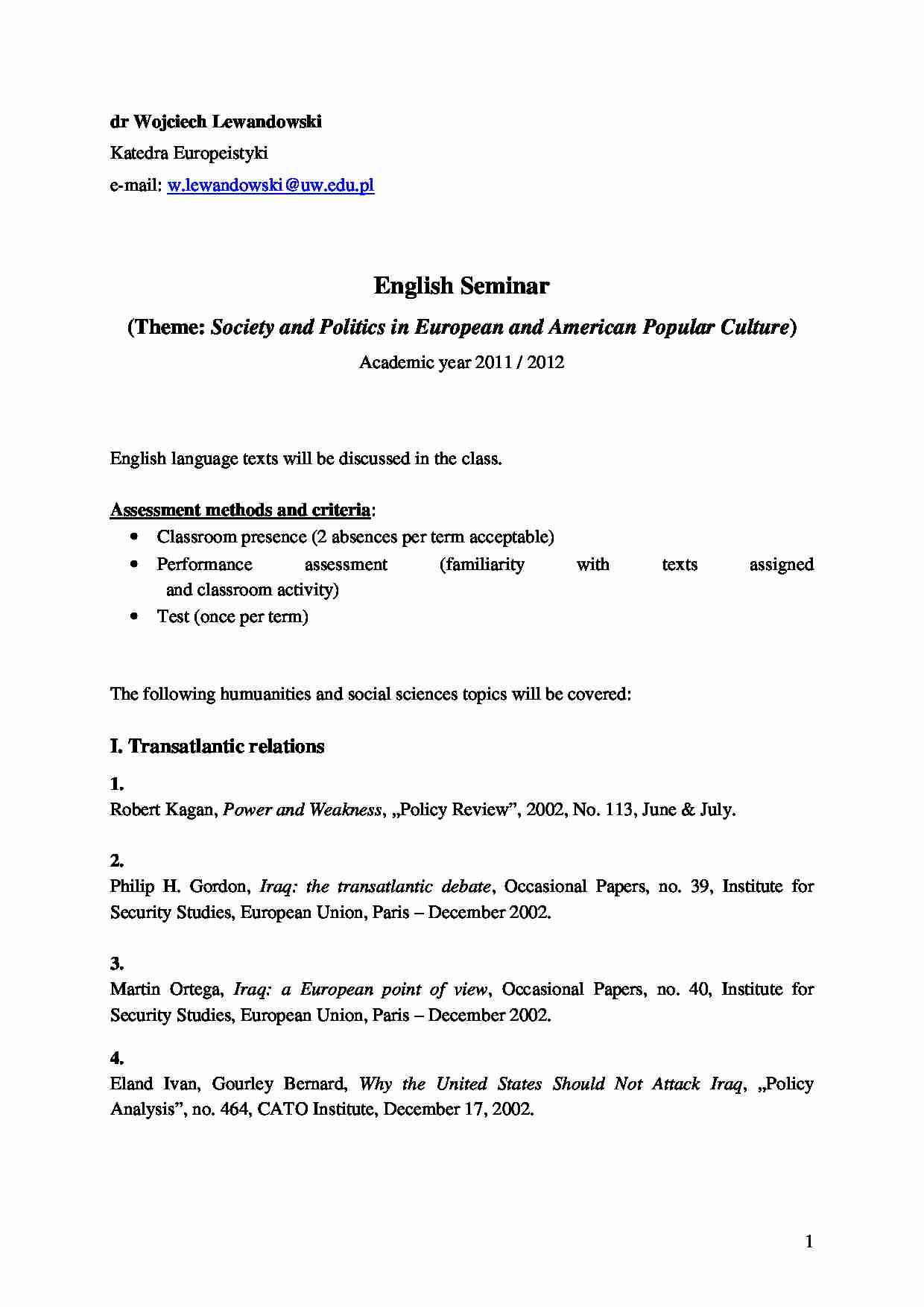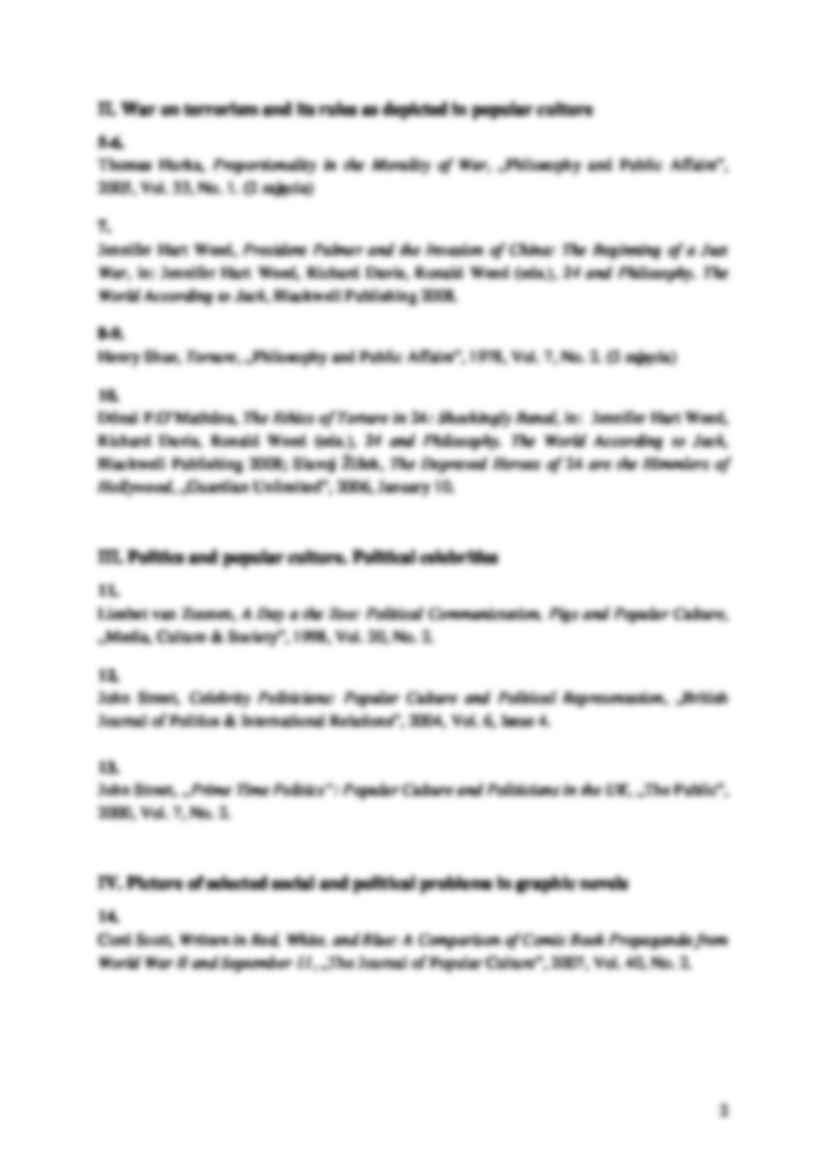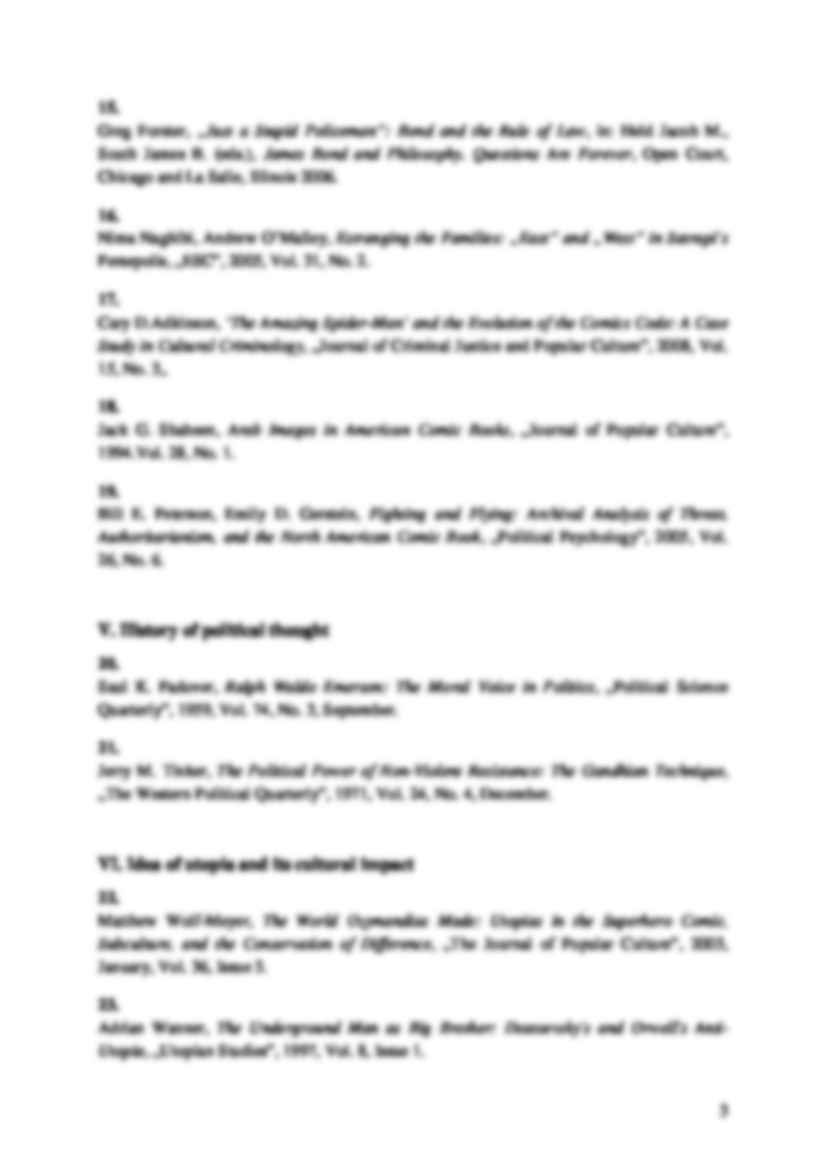dr Wojciech Lewandowski
Katedra Europeistyki
e-mail: w.lewandowski@uw.edu.pl
English Seminar
(Theme: Society and Politics in European and American Popular Culture)
Academic year 2011 / 2012
English language texts will be discussed in the class.
Assessment methods and criteria:
• Classroom presence (2 absences per term acceptable)
• Performance
assessment
(familiarity
and classroom activity)
• Test (once per term)
with
texts
assigned
The following humuanities and social sciences topics will be covered:
I. Transatlantic relations
1.
Robert Kagan, Power and Weakness, „Policy Review”, 2002, No. 113, June & July.
2.
Philip H. Gordon, Iraq: the transatlantic debate, Occasional Papers, no. 39, Institute for
Security Studies, European Union, Paris – December 2002.
3.
Martin Ortega, Iraq: a European point of view, Occasional Papers, no. 40, Institute for
Security Studies, European Union, Paris – December 2002.
4.
Eland Ivan, Gourley Bernard, Why the United States Should Not Attack Iraq, „Policy
Analysis”, no. 464, CATO Institute, December 17, 2002.
1
II. War on terrorism and its rules as depicted in popular culture
5-6.
Thomas Hurka, Proportionality in the Morality of War, „Philosophy and Public Affairs”,
2005, Vol. 33, No. 1. (2 zajęcia)
7.
Jennifer Hart Weed, President Palmer and the Invasion of China: The Beginning of a Just
War, in: Jennifer Hart Weed, Richard Davis, Ronald Weed (eds.), 24 and Philosophy. The
World According to Jack, Blackwell Publishing 2008.
8-9.
Henry Shue, Torture, „Philosophy and Public Affairs”, 1978, Vol. 7, No. 2. (2 zajęcia)
10.
Dónal P.O’Mathúna, The Ethics of Torture in 24: Shockingly Banal, in: Jennifer Hart Weed,
Richard Davis, Ronald Weed (eds.), 24 and Philosophy. The World According to Jack,
Blackwell Publishing 2008; Slavoj Žižek, The Depraved Heroes of 24 are the Himmlers of
Hollywood, „Guardian Unlimited”, 2006, January 10.
III. Politics and popular culture. Political celebrities
11.
Liesbet van Zoonen, A Day a the Zoo: Political Communictation, Pigs and Popular Culture,
„Media, Culture & Society”, 1998, Vol. 20, No. 2.
12.
John Street, Celebrity Politicians: Popular Culture and Political Representation, „British
Journal of Politics & International Relations”, 2004, Vol. 6, Issue 4.
13.
John Street, „Prime Time Politics”: Popular Culture and Politicians in the UK, „The Public”,
2000, Vol. 7, No. 2.
IV. Picture of selected social and political problems in graphic novels
14.
Cord Scott, Written in Red, White, and Blue: A Comparison of Comic Book Propaganda from
World War II and September 11, „The Journal of Popular Culture”, 2007, Vol. 40, No. 2.
2
15.
Greg Forster, „Just a Stupid Policeman”: Bond and the Rule of Law, in: Held Jacob M.,
South James B. (eds.), James Bond and Philosophy. Questions Are Forever, Open Court,
Chicago and La Salle, Illinois 2006.
16.
Nima Naghibi, Andrew O’Malley, Estranging the Families: „East” and „West” in Satrapi’s
Persepolis, „ESC”, 2005, Vol. 31, No. 2.
17.
Cary
... zobacz całą notatkę






Komentarze użytkowników (0)